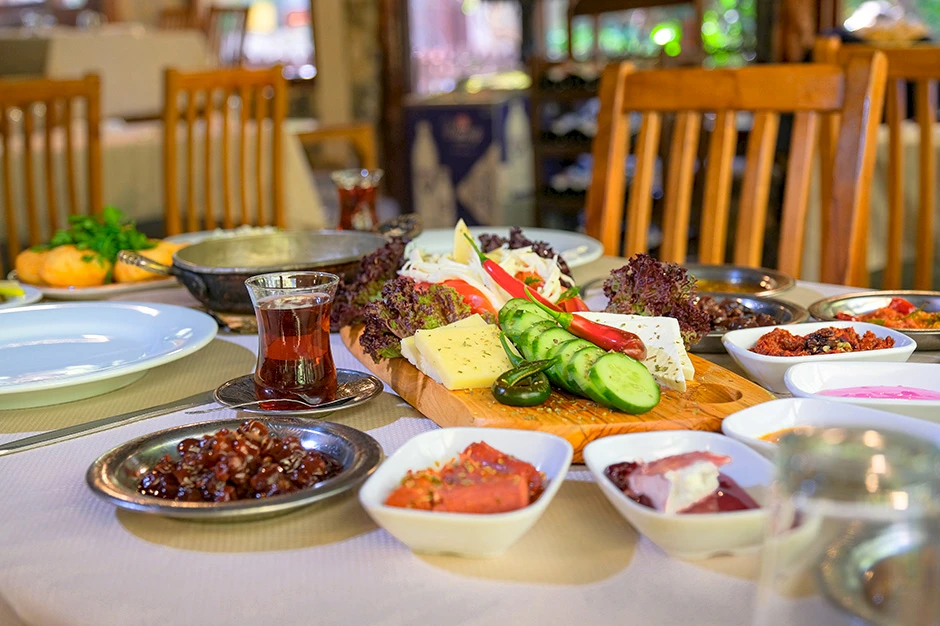The Importance of Breakfast in Turkish Culture

23.07.2022
Breakfast, one of the most deep-rooted traditions of Turkish culture, is not just a meal, but also an important part of a lifestyle and sharing. The place of breakfast in Turkish culture is the beginning of taste and social ties.
Rich Variety and Taste:
Turkish breakfast is generally known for its rich variety. Ingredients such as fresh vegetables, fresh bread, various cheeses, olives, butter, honey, jams and hot tea adorn the table. Each offers its own special taste and texture. The lightness of white cheese, the consistency of cheddar cheese, the saltiness of olives and the sweetness of jams increase the variety of breakfast.
Time of Sharing:
In Turkish culture, breakfast is a ritual where families and friends come together and start the day together. Gathering together in the morning is seen as a way to strengthen both physical and emotional bonds. This time increases closeness between family members and friends.
Hospitality and Respect:
In Turkish culture, breakfast is an expression of hospitality and respect. Hosting a guest means providing them with the best ingredients. Usually, guests are offered the most special cheeses, jams and cookies. This makes guests feel important and welcome.
Energizing the Day:
Breakfast is the key to starting the day full of energy. The healthy components of the Turkish breakfast prepare the body for the day. Especially fresh vegetables and dairy products provide the energy needed throughout the day.
Cultural Identity and Heritage:
Turkish breakfast is a cultural heritage that has been formed over centuries. Breakfasts in different regions vary with local ingredients and traditions. Each breakfast reflects the cultural identity of that region.
As a result, in Turkish culture, breakfast is a symbol of taste and sharing. This special moment when families, friends and guests come together and welcome the first light of the day is an important part of Turkish cuisine and culture. Breakfast is considered not just a meal, but also a way for Turkish people to celebrate their hospitality and cultural heritage.